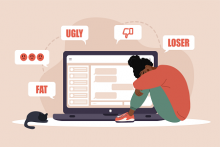Radhika Jhalani
Radhika is Volunteer Legal Counsel and heads the Internet Shutdowns and Free Speech Project at the Software Freedom Law Center (SFLC.in.) She also imparts Digital Security Training on behalf of SFLC.in.
Prior to this, she was a Digital Defender fellow at SFLC.in. She graduated in philosophy from Hindu College and received a law degree from Delhi University in 2019. In addition to technology and human rights, she is passionate about culture, environment, and mental health. She previously ran operations for an online film archive.


